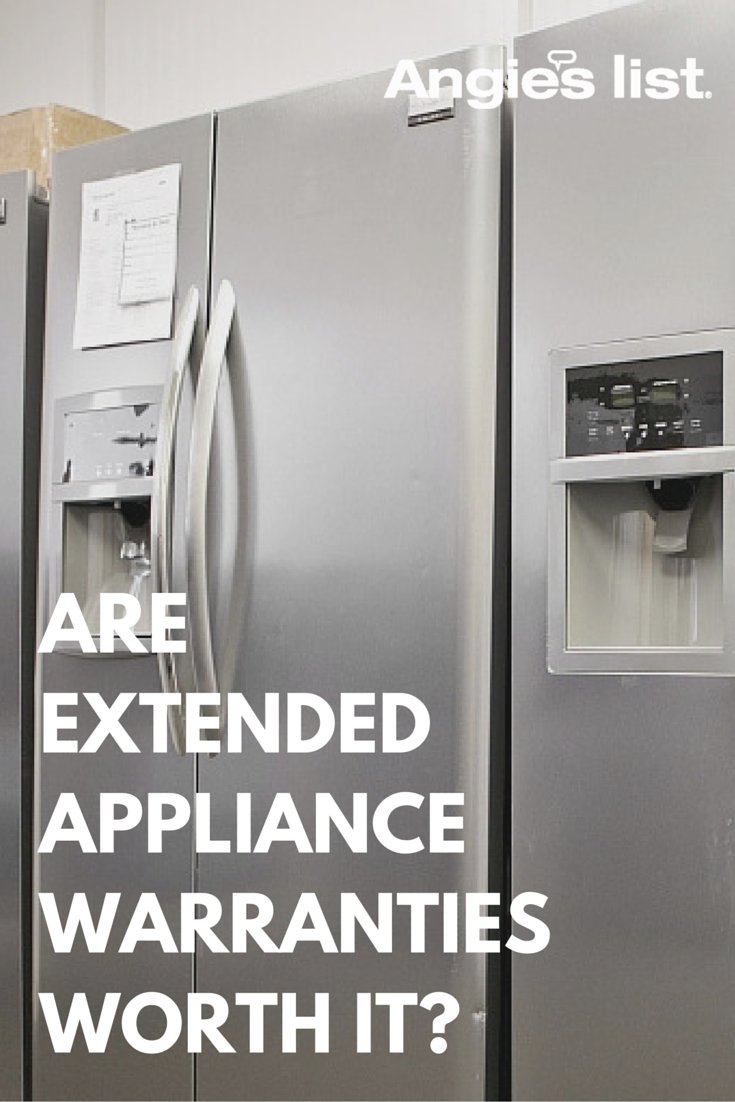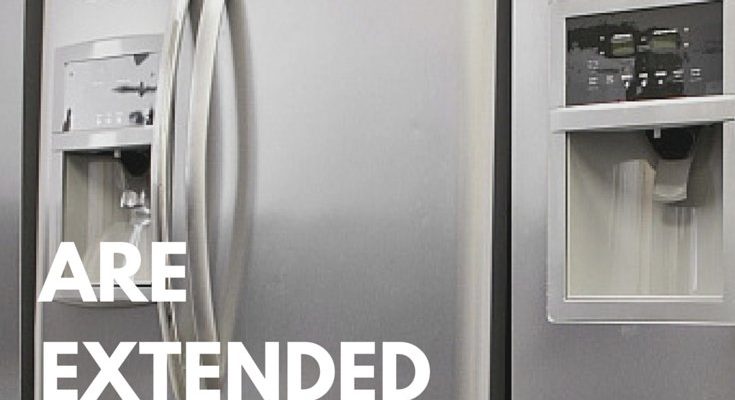
Think of it like buying insurance for your car. You hope you never need it, but if something goes wrong, it can save a headache or even thousands in repair bills. With a GE refrigerator, the stakes feel high because replacing or repairing major parts can be pricy, and losing your fridge unexpectedly is an immediate inconvenience. But here’s the thing: these appliances often come with solid manufacturer warranties, and extended plans can sometimes overlap with that coverage. Let’s unpack how extended warranties work specifically for GE refrigerators and whether they make sense for you.
Understanding What an Extended Warranty Covers for GE Refrigerators
First off, what does an extended warranty actually cover? Usually, it’s a promise to fix or replace parts that break down *after* your standard manufacturer warranty expires. GE refrigerators typically come with a one-year limited warranty covering parts and labor, and some parts, like the compressor, might have longer coverage.
An extended warranty can kick in when those initial warranties run out, protecting you from costly repairs like a failed compressor or faulty control board. But here’s the catch: these extended plans often exclude things like routine maintenance, damage caused by accidents, or improper use. So if your fridge stops cooling because you forgot to clean the coils or spilled soda inside, that might not be covered.
Think of the extended warranty as a safety net that catches you only if the fridge’s internal parts fail—not if the problem is due to *how* you use (or misuse) the appliance. You might want to carefully read what’s included and what’s not before committing.
How Reliable Are GE Refrigerators? Does This Affect Warranty Value?
You might be wondering: *If GE fridges are super reliable, do I even need an extended warranty?* Honestly, GE refrigerators are generally well-built and have good durability records. They go through rigorous quality control and often come with smart features like digital temperature controls and adaptive defrost systems that keep things running smoothly.
Still, no appliance is perfect forever. Like any mechanical device, a fridge can develop issues—compressors wear out, doors fail to seal, or electronics can glitch. But many owners never face major repairs during the first few years.
This matters because if your GE fridge is likely to last well past the manufacturer warranty period with minimal issues, an extended warranty might end up being an unnecessary expense. It’s a bit like paying for a gym membership when you already run or bike daily—sometimes you’re paying for peace of mind more than actual use.
What Are the Typical Costs and Benefits of Extended Warranties for GE Refrigerators?
Here’s the thing: extended warranties come with a price tag that often depends on your fridge’s model and price range. On average, you might expect to pay between $150 to $400 or more for extra coverage lasting 2 to 5 years beyond the standard warranty.
But what do you get for that money? Mainly, the benefit is financial protection against surprise repair bills. For example, if the compressor fails (which can cost $300-$600 to replace), your extended warranty could potentially cover the cost, minus any deductible.
On the flip side, if your fridge runs smoothly, you’ll have paid extra for something you never used. Some consumers compare extended warranties to a lottery ticket—you may never need them, but if you do, it’s a big help.
Here’s a quick comparison:
| Cost | Benefit | Drawback |
|---|---|---|
| $150 – $400 | Peace of mind, covers major repairs | May never use it, adds to initial cost |
Common Repair Issues With GE Refrigerators That Warranties Cover
Let me explain some of the typical headaches that extended warranties often protect against. GE refrigerators have complex parts like compressors, evaporator fans, defrost heaters, and electronic control boards—all of which can fail over time.
- Compressor failure: This is often the priciest fix and can cause the fridge to stop cooling altogether.
- Control board glitches: If the brain of your fridge goes haywire, things like temperature control and ice makers might act up.
- Defrost system issues: Problems here can lead to frost buildup and poor cooling.
- Water or ice dispenser failures: Common but usually cheaper to fix.
If one of these major components fails after your standard warranty, having extended coverage could save you a lot of money—and hassle.
When Extended Warranty Might Not Be Necessary for Your GE Fridge
On the other hand, maybe you have a solid emergency fund and don’t mind covering repair costs out of pocket. Or perhaps you live somewhere with easy access to affordable repair services and replacement parts.
Also, if you bought your GE refrigerator with a credit card that offers built-in extended warranty benefits, you may already have overlap coverage without knowing it. Some manufacturers even offer extended warranties at a discount after purchase, which gives you time to decide if you want the protection.
Plus, if you treat your fridge well—cleaning coils, setting proper temperatures, and avoiding overstuffing—you might drastically reduce the chance of breakdowns, making extended coverage less critical.
How to Decide If Extended Warranty Is Right for You
Here’s a simple way to think it through:
- Consider your comfort with risk: Do unexpected repair bills stress you out?
- Evaluate your fridge model: Higher-end GE refrigerators might have more expensive repairs, making extended warranty more valuable.
- Check existing coverage: What does your manufacturer or credit card already cover?
- Review warranty terms carefully: Understand what’s excluded and how claims work.
- Calculate potential costs: Compare warranty price against what repairs would cost if something major went wrong.
If you want an extra layer of protection and peace of mind for your investment, extended warranty can be worth it. But if you’re handy, patient, or simply prefer to self-insure, skipping it might make more sense.
Tips for Managing Your GE Refrigerator Warranty and Troubleshooting
If you decide to go without extended warranty or want to maximize your existing coverage, here are some handy tips:
- Register your refrigerator: Register your GE fridge with the manufacturer to streamline warranty service when needed.
- Keep receipts and manuals: These come in handy if you need to file a claim or troubleshoot issues.
- Learn basic troubleshooting: Sometimes a “reset” or unplugging the fridge for a few minutes can solve common glitches.
- Perform regular maintenance: Clean condenser coils, check door seals, and replace water filters as recommended.
- Contact authorized repair centers: For warranty service, use official GE technicians to avoid voiding coverage.
Honestly, being proactive can save you from many problems that extended warranties don’t cover anyway.
Wrapping It All Up: Is Extended Warranty Worth It for GE Refrigerators?
So, is an extended warranty worth it for your GE refrigerator? Well, it depends on your appetite for risk, how long you plan to keep the fridge, and your confidence in managing repairs. Extended warranties can feel like a safety blanket—sometimes you’ll appreciate having it, sometimes you won’t.
GE refrigerators come with solid reliability and standard warranties, which cover most issues during the first year. But if you want to avoid any surprise repair costs down the road, especially for pricey parts like compressors or electronic controls, an extended warranty can be a smart choice.
Remember, the key is to read the fine print, weigh the potential repair costs, and decide what makes you feel most comfortable. Like choosing whether to carry an umbrella on a cloudy day—it’s about balancing the chance of rain with peace of mind. Whatever you decide, a little care and maintenance will go a long way in keeping your fridge humming happily for years.
